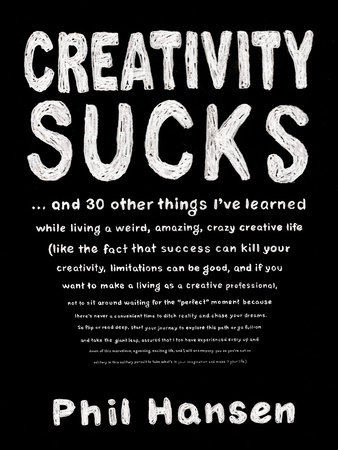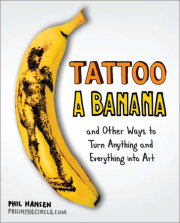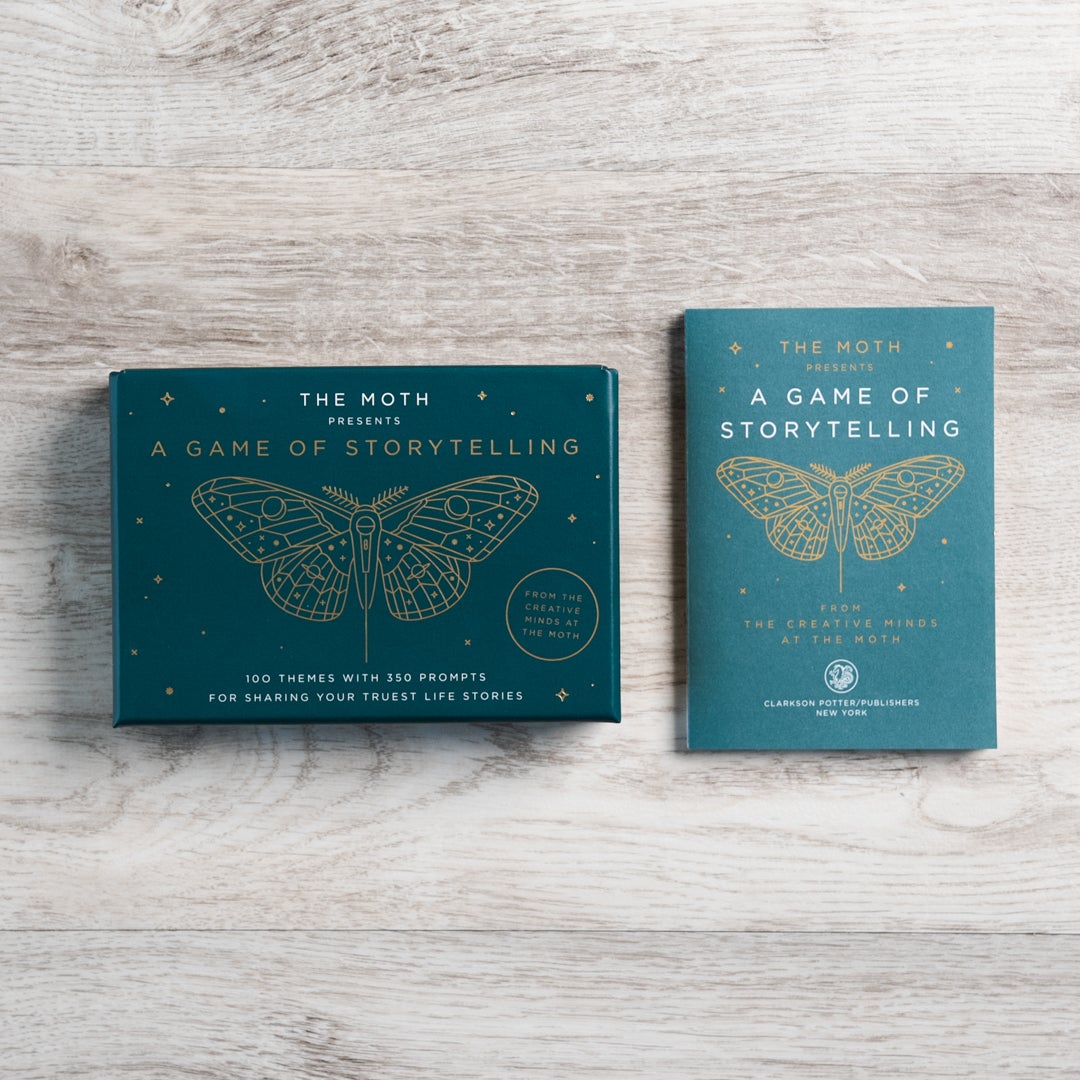Several years ago, I found myself totally depressed at what was arguably the highest point in my career. It was a very strange time. To the outside world, I was riding high on success . . . but on the inside, I was in an emotional gutter. I had just given a TED Talk, starred in a commercial for Mazda that aired throughout Europe, created a commissioned piece for the Rockefeller Foundation that was displayed in the middle of Times Square, and launched an art education startup. If it sounds cool, I suppose it was. Since I was a kid, I'd worked so hard to reach that point, and I'd always expected it would make me incredibly happy. Oddly, it didn't.
All the while, I kept waiting for it to set in-that feeling that I'd arrived. Sure, at times, it would hit me: Wow, check out my life! But those moments didn't last. Instead, over a period of a few months, I realized I had never been more depressed. I gained thirty pounds, developed some facial tics, and started drinking so much that it dawned on me that I was becoming an alcoholic. At thirty-four years old, I'd managed to send my blood pressure through the roof. When you're your own boss, you don't have to call in sick; and one morning when I woke up after a few too many the night before, it occurred to me that I was turning into the stereotypical artist: a deadbeat depressive drunk. And maybe I was.
I was deflated. Confused. While I was living what others had labeled "the dream," creativity was revealing itself to me like a stranger the morning after a one-night stand: now that the magic had happened, I was seeing that it also had an ugly side. It was like the part of my identity that I'd always been able to count on-the impulse to create that had made me who I was-had turned on me. At that point, I learned something completely unexpected about a topic I thought I knew a lot about: creativity has the potential to completely suck.
Sucking comes in various forms, like . . .
We can't control when our ideas come to us, if they come at all. (Grr.)
Our goal may be to create something original, but dang, it seems so hard to be original anymore.
When we make a living from our creativity, that often makes us less creative.
There is rarely enough time or money to complete our moonshot projects.
Even when we spend a ton of effort on something, it still might get tossed.
Our ideas could be great, but we may not have the skills to bring them to life.
The stress of executing a project can diminish any enjoyment we feel.
Dealing with our inner critic and other people's opinions honestly really hurts sometimes.
The creative trajectory is so different from how progress is measured in other fields. When we look at how our society treats the feats that we can quantify (think: a career in sports with a high salary, millions of fans, ESPN highlight shows, and special recognition), most people are coached to reach these achievements in a completely different way than any creative goal. When a kid learns a sport, adults tell him or her: "No pain, no gain!" or, "When the going gets tough, the tough get going!" From a young age, we inherently understand that it's going to take a ton of effort before we can pump our chests with pride on the playing field. But no one tells us about the grit creativity takes. Painting? Photography? It's perceived as fun, fun, fun. In reality, you and I both know these endeavors take endurance and perseverance. They require the same discipline and dedication that sports do: getting to it early, training and practice, muscle memory, falls and flops-just like in any area of study or work where success is determined quantitatively.
Maybe that's why, historically, art has been taken less seriously than something like sports. It shouldn't surprise any of us that very few high school graduates pursue a creative outlet, and fewer still will go on to pursue a career in the arts. It's because we're not raised to deal with the type of difficulty that comes along with it. When we finger-paint in preschool, Mom hangs it on the fridge. When we're in college, the professor gives us assignments in which to create and we get a grade. Later, when we're responsible for generating one original idea after another and our career depends on it, we may think we're in over our heads. When we hit a rough patch, it's probable many of us are not quite prepared to weather the storm. On top of that, once our childhood cheering sections dissipate and we struggle with our creativity, people say things like, "I sure hope you have a backup plan" or the clichŽd classic: "Better keep your day job!"
After my TED Talk, the TV ad campaign, and everything else that had happened by the time I reached the height of my career and the lowest of my spirits, I accepted that creativity can (and often does) suck. I stopped parroting "It's supposed to be fun!" and instead, started discussing it with my peers. When we all got real and acknowledged that we were not total masters 100 percent of the time, I noticed that my misery was not all that uncommon.
First of all, it seemed like no one wanted to talk about it because a lot of the accomplished artists I knew didn't want to give off the appearance that great work doesn't always flow naturally. Keeping up that mask was a burden in and of itself, but once we broke through it, the list of struggles ran the gamut: from waiting to get paid by clients (and knowing what kind of price tag to put on our work) to listening to the harsh opinions of people who aren't as familiar with art-working in this world comes with a lot of inherent fights. It turns out feeling defeated from time to time is a universal truth for any individual who lives his, her, or their life guided by a creative passion.
<~?~[INSERT ART 007]>
As I write this, it's finally crystal clear to me that every creative I know has been beaten and bruised by the art life-and yet, we still love it. Why? Because the greatest skill we all share is having the strength to weather the tough times and hang on. The good times will return for things to click and make sense again. So, that's why I do this. Yep, that's why. Because as much as creativity sucks sometimes, what will actually define your success are the times you bounce back, push through, and keep moving forward.
The first step to the rest of your journey is to accept that the artist's life is not all puppy dogs and paintbrushes. Oh, you'll have the honeymoon moments, the hits, the highs, the high fives. But then shit will get real in a jiffy. Even if you've never experienced it, it happens to the best of us.
We're one chapter deep, and we've already covered a fine plethora of ways creativity can stump us. So, why are we the ones who have been lured by the call to the awesome but unpredictable creative life? Is there a trait we makers all share?
There is. By the time you've picked up this book, you've already placed value on your creativity. You've set it above other activities; you've determined it deserves your investment-your time, your attention, sometimes even your money. An individual with creativity is someone who will choose working on a project over kicking up their feet and watching a show. They'll consider bypassing brunch with friends to spend that time learning a new skill, or they'll use that block of free time to make progress on a project. This is awesome because it's something any of us can do right now. When we reach the point where any others are actually starting to show interest in our art, it's because we were the ones who first deemed our work worthwhile. I should add that usually even before that phase, there's a process of discernment when our dabbling turns into decision.
For me, the path to a creative life was straightforward at first. Growing up, I liked drawing and art as much as most of my peers did, but in high school, my interest reached a new level. I had an art teacher (shout-out to Mr. Phelan) who supported creativity in general above any specific "skill." He encouraged me to follow my imagination into whatever my curiosity was.
For a Pacific Northwestern kid with a lot of inquisitiveness and energy, that was all I needed to hear. Mr. Phelan probably didn't even know it at the time, but he gave me permission to explore my interests in a way that transported me outside of my everyday world. I grew very focused, spending a lot of time drawing and developing my skill set. The truth is, I didn't have any natural talent. Seriously. I just worked my butt off to get better. These days my product seems more effortless because I put in the time back then, but to a certain extent it amuses me to remember that kid who had no clue what he was doing but was so hungry to keep doing it.
If you enjoy it, keep doing it; and when you get bored, push your own boundaries.
That's how creativity is: we have no idea where it will take us, but we dream and go where it leads. It took me years to get any good at drawing. Today, if someone were to analyze my work from back then, they would see that I had some flair in terms of my inventiveness, but I wasn't good. There are thousands of people with far better raw talent. Back then, I was just willing to work-and these days, I just keep working, nudging at the boundaries, looking for holes to poke and places to expand.
Recently, I was chatting with an acquaintance who used to draw cartoons for our college paper, but he hasn't done much with it since. "How did you just keep making stuff?" he asked me. The way he asked seemed to suggest that he felt some regret for not having stayed the course. I told him what Mr. Phelan taught me: if you enjoy it, keep doing it; and when you get bored, push your own boundaries. Art drew me in through a desire to see something I've created take on a life beyond myself. I do this because it's how I share. The aspiration for creative expression isn't just for the young. You know you're meant for this life when nobody else can talk you out of it.
You've seen it-and if you haven't, you will: that phase in life when the creative pursuits of the people you know are squeezed out of their lives. "The squeeze" usually begins as "life things" stack up, like a full-time job, a relationship, a home to take care of, and other responsibilities. Don't be that artist who one day looks up from your corporate desk or your cool new car and realizes that your creative projects have been simmering on the back burner for years. We all intend to get back to making art as soon as things calm down and we get a little window to focus on a project, but guess what? Life never stops happening. You are the only one who can carve out that time.
Life never stops happening.
When a friend of mine began art school, her professor dropped this classic scare tactic on her class. "Look to your left," he said. "Now look to your right. After you graduate, half of you won't be making art." My friend felt there was no way that she or her friends would ever fall into that trap. Art was her life. But when I ran into her two years after graduation . . . you guessed it. She was working full-time as a clerk in a law office. She'd completely stopped making art. So had many of her friends, and she only knew one person from her entire class who was making a living from their art.
The squeeze is natural. Art alone is work, and making a living from it takes some serious hustle. There are so many highly trained and talented artists who realized: hey, life is easier when you can count on the basics-especially a regular paycheck. Valid? Absolutely. But creating is such an important part of the artist's identity that if he or she is not expressing what's inside them, they don't feel totally alive. That's why I hear lots of older folks say, "I wish I had kept doing art my whole life!" Waiting to take a sculpture class at the senior center makes for a lot of years of not living fully.
There's a solution to that: don't ever stop. The world will always threaten to squeeze the creativity out of our lives. You've got to set proper expectations; you've got to hold that space in your life and protect it. It makes you who you are.
I've observed a few beliefs that creative people hold about how easily their careers will go, and how these beliefs can impact an artist's future:
1. It Will Be Easy. This is Darwin's natural selection of the creative world. Thinking the masses will gobble up your work right out of the gate will squeeze out a sizable cohort of your colleagues. A lot of developing artists expect to graduate and stumble straight into lucrative art careers and full-time creative jobs, not to mention all the creature comforts that go with being a raving success. If you fall into this mindset, and you're not striking it rich in your field yet . . . maybe you need to seek out another perspective. Forget making a million dollars from your art. Simply having your art in your life as you age is an accomplishment to marvel. If you find yourself thinking it will be easy, eventually you'll need to choose between letting your creative projects slide or hunkering down and working harder.
2. Hard Work Will Get Me There. This type of person believes their creativity comes before other things in life. They won't talk about lowercase "plan b" much (if ever), but they do have it, just in case everything falls apart. Plan b might mean getting a roommate or getting a day job if the money runs out. But they aren't giving up their art for anything. It won't be easy, but if you can adopt this attitude and really stick to it, your art career can survive for years before feeling a serious squeeze.
Copyright © 2020 by Phil Hansen. All rights reserved. No part of this excerpt may be reproduced or reprinted without permission in writing from the publisher.







